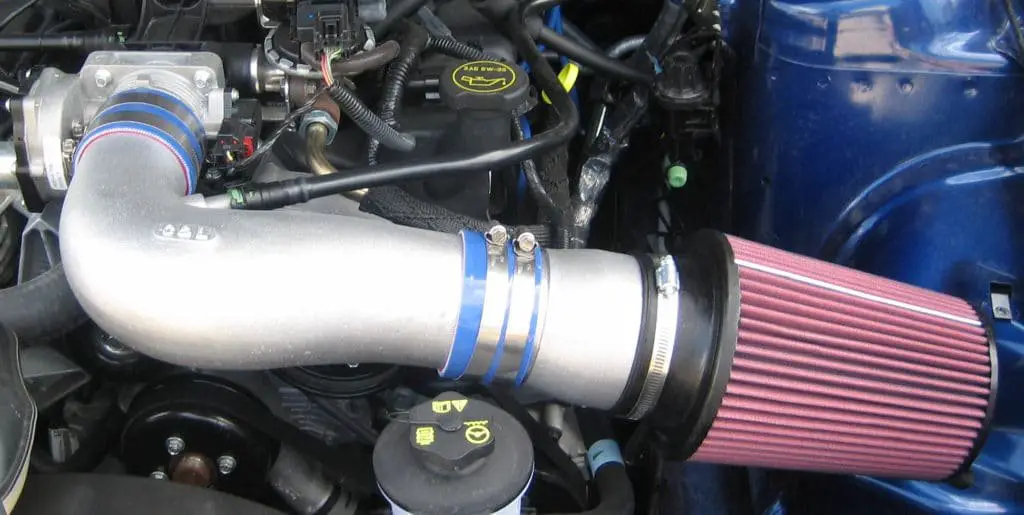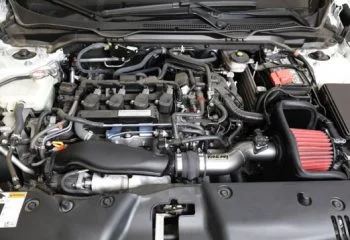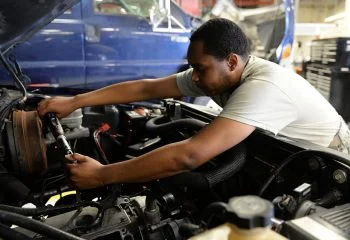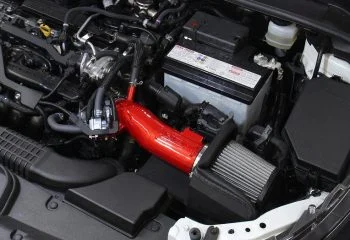When it comes to improving your car’s fuel economy, you may be wondering if a cold air intake is a right choice for you.
There is a lot of debate on the internet about does cold air intake increases mpg?
Yes, it does. The efficiency of your car can be increased by up to 5 mpg with a cold air intake, but this varies depending on which component you install and what kind of vehicle it is.
In this blog post, we’ll find out why a cold air intake system can improve your car’s fuel economy. We’ll also provide some tips on how you can get the most out of your car’s fuel economy.
What's in this post?
What affects fuel efficiency?
Weight of the vehicle
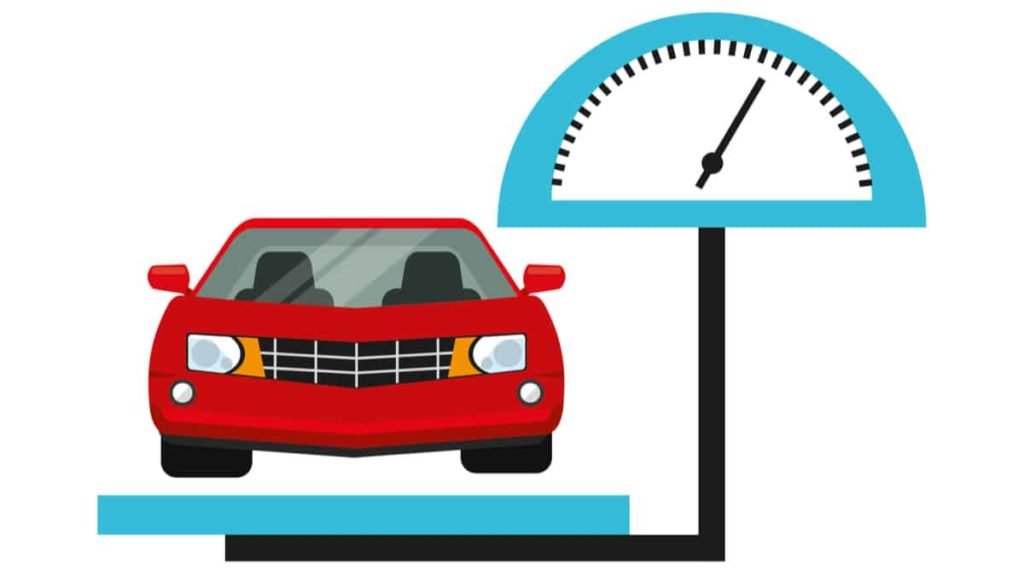
Many factors affect a vehicle’s fuel efficiency. The first is the weight of the vehicle.
Heavier vehicles require more energy to accelerate and maintain speed, resulting in higher fuel consumption.
In addition, extra weight also causes tires to wear out faster and increases the likelihood of mechanical problems.
As a result, it is important to consider the weight of a vehicle when choosing one that is fuel-efficient.
Lighter vehicles tend to be more fuel-efficient than heavier ones, making them a better choice for those who are looking to save money on gas.
The aerodynamics
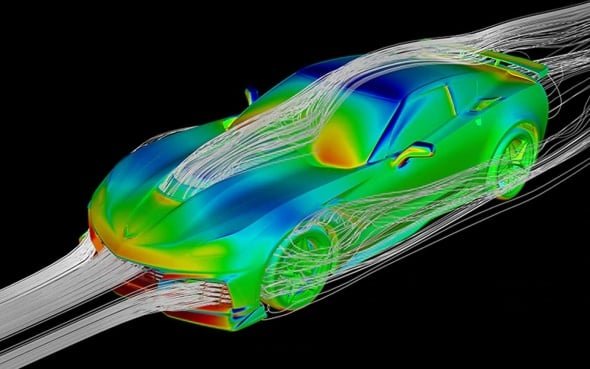
The aerodynamics of a vehicle has a significant impact on fuel efficiency. When a vehicle is designed, the aerodynamic effects on fuel economy must be considered.
The overall shape of the vehicle affects how air flows around it and creates drag. Aerodynamic drag increases fuel consumption because the engine must work harder to maintain the same speed.
In addition, poor aerodynamics can cause turbulence which also decreases fuel efficiency. To reduce drag and improve fuel economy, vehicles are designed with aerodynamic features such as smooth surfaces, sloped windshields, and rear spoilers.
By reducing the drag on the vehicle, less energy is required from the engine which results in improved fuel economy.
The Engine
The engine is the heart of the vehicle, and its efficiency has a direct impact on fuel economy.
Internal combustion engines convert the energy in gasoline into mechanical energy, which powers the car.
More efficient engines waste less energy in the form of heat and thus require less fuel to produce the same amount of power.
There are a number of factors that affect engine efficiency, including compression ratio, valve timing, and fuel injection.
By understanding how these factors impact engine efficiency, automakers can design vehicles with better fuel economy.
For example, by increasing the compression ratio, engineers can improve an engine’s ability to convert gasoline into energy.
As a result, higher-compression engines typically have better fuel economy than their lower-compression counterparts.
Similarly, by carefully tuning the valve timing, engineers can minimize the amount of wasted heat and improve fuel economy.
Through careful design and engineering, automakers can build vehicles with highly efficient engines that use less fuel and emit fewer emissions.
All of these factors must be considered when trying to determine how fuel-efficient a particular vehicle will be.
How to measure fuel performance
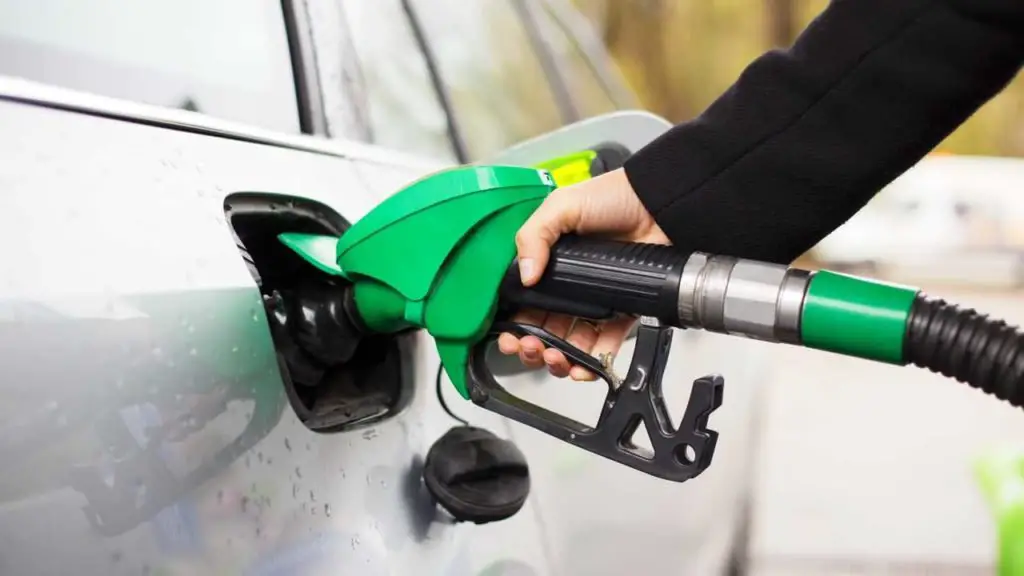
Fuel economy is the amount of fuel consumed by a vehicle per unit of distance traveled. It is usually expressed in miles per gallon (MPG) or liters per 100 kilometers.
There are a number of factors that can affect fuel economies, such as the type of vehicle, the weight of the vehicle, aerodynamic drag, and rolling resistance.
One way to measure fuel performance is to use a calculator that takes into account these different factors.
This will give you an estimate of how much fuel your vehicle will consume over a certain distance.
Alternatively, you can use a standardized test cycle, such as the EPA’s label test, to compare the fuel economy of different vehicles.
Does cold air intake increase mpg and Why?
In order to understand whether or not a cold air intake will increase your car’s miles per gallon (mpg), it is important to first understand how the engine works.
The engine pulls in air, which is then mixed with gasoline and ignited. The expanding gases from the combustion push the pistons, which turn the crankshaft and powers the car.
The more power the engine produces, the more fuel it burns. A cold air intake increases power by providing a denser mixture of air and gasoline for the engine.
This can lead to an increase in mpg, but it depends on the type of engine and how it is tuned.
Some engines are not designed to take advantage of a cold air intake and may actually see a decrease in mpg. In general, however, a cold air intake can provide a small boost in mpg.
A cold air intake is an aftermarket automotive device that pulls colder, denser air from outside the vehicle and into the engine.
The colder, denser air results in more power when combusted. In addition to increased power, a cold air intake system can also increase fuel efficiency by 3 to 5 MPG. However, this varies based on the vehicle and the quality of the component.
A cold air intake will only improve gas mileage if it delivers more cold air than the manufacturer’s original intake.
However, be sure to do your research to ensure that you select a high-quality component that will deliver the promised results.
By the way, these are some most powerful cold air intake to consider for your car.
How can you make the most of your vehicle’s gas mileage?
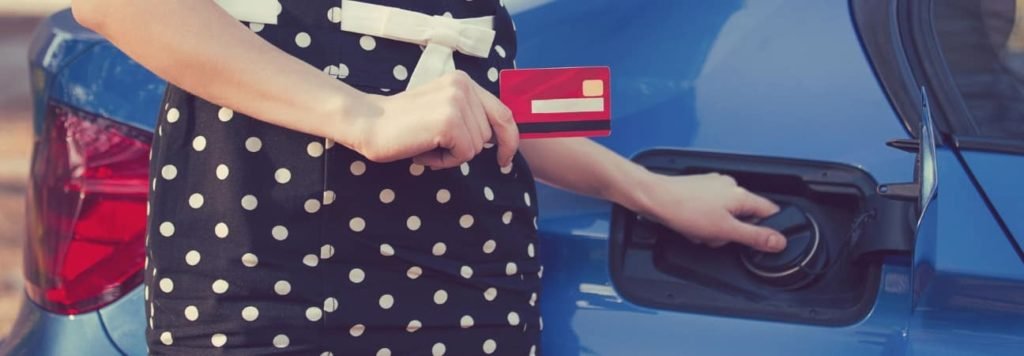
There are a few simple ways to get the most out of your vehicle’s gas mileage.
Inflated your tires
Many people don’t realize that one of the easiest ways to improve their car’s fuel economy is to simply keep their tires inflated to the proper pressure.
Under-inflated tires can reduce fuel economy by up to 3.3%, according to the U.S. Department of Energy.
That may not seem like much, but it can add up over time. In addition, under-inflated tires are more likely to fail prematurely, which can be a costly repair.
To avoid these problems, it’s important to check your tire pressure regularly and inflate them to the recommended pressure levels.
Doing so will not only help improve your fuel economy, but it will also help extend the life of your tires.
Avoid driving with unnecessary weight
There are a number of ways to improve your vehicle’s fuel economy, and one of the most effective is to avoid carrying unnecessary weight.
Every extra pound in your car reduces fuel efficiency by about two percent, so even a few hundred pounds of extra weight can have a significant impact on your gas mileage.
When packing for a trip, be sure to only bring along items that are absolutely essential. And if you frequently transport heavy items, consider investing in a lightweight trailer or roof rack.
By reducing the weight you’re carrying, you can significantly improve your fuel economy and save money at the pump.
Drive at a consistent speed
Finally, try to drive at a consistent speed rather than accelerating and braking frequently.
When a car speeds up and then slows down repeatedly, it uses more gas than if it maintained a steady speed.
This is because it takes more energy to accelerate a vehicle than to maintain a constant velocity.
In addition, driving at a consistent speed can help to prolong the life of your car’s engine by preventing premature wear and tear.
So next time you’re behind the wheel, try to resist the urge to speed up and slow down unnecessarily. By keeping a steady pace, you’ll save money and extend the life of your car.
Use cruise control
Whenever possible, use your car’s cruise control feature. This helps to maintain a consistent speed and can save you gas in the long run.
Of course, you should still use your common sense when using cruise control.
For example, if you’re driving in stop-and-go traffic, it may be best to turn off cruise control to avoid wasting gas.
But if you’re on the highway and there’s no need to slow down, keeping your car at a constant speed can help improve fuel economy.
Avoid idling
When your car is idling, it’s getting zero miles per gallon. So if you’re going to be stopped for more than a minute or two, it’s best to turn off your engine.
This is especially important in cold weather, as idling for long periods of time can waste a lot of gas.
If you’re going to be stopped for more than a minute, it’s best to turn off your engine. This will help save gas and keep you warm in the winter months.
Clean your air filter
One of the simplest ways to improve your car’s fuel economy is to clean your air filter.
A dirty air filter can reduce fuel economy by up to 10%, so it’s important to keep it clean.
You should check your air filter every 12,000 miles or so and replace it if it’s dirty.
Cleaning or replacing your air filter is a quick and easy way to improve your car’s fuel economy. Fortunately, cleaning your air filter is a quick and easy process that can be done yourself with just a few simple tools.
Here’s how to clean cold air intake filter using the method that is most effective for your specific type of air filter.
Does cold air give you better gas mileage?
Much like any other combustion engine, the performance of your vehicle’s engine is affected by extreme weather conditions such as cold air. In fact, studies conducted by the U.S.
Department of Energy show that driving in cold weather can decrease fuel economy up to 35 percent during winter months compared to hotter summer temperatures!
The reason for this significant drop in gas mileage has mainly to do with viscosity levels and air density changes at lower temperatures.
Colder air is denser than warmer air which affects the way it mixes with your car’s gasoline when you ignite it, resulting in a less efficient combustion process.
his reduces the amount of energy derived from each unit of fuel burned, meaning you have reduce power output and subsequently more petrol being burned for every mile travelled.
Begin your vehicle’s engine 5-10 minutes before embarking on your journey, allowing the oil to circulate and harmonize with the heart of your ride. Attune your tires with the manufacturer’s recommended inflation levels, guiding your vehicle towards the road of efficiency.
Shed unnecessary burdens from your car, alleviating the strain on brakes and suspension, and forging a lighter path. Embrace these heartfelt tips to elevate your vehicle’s performance and savor the embrace of fuel cost savings.
FAQs
Will a High Flow Air Filter Increase Gas Mileage?
Yes. With a high-flow air filter, you will notice an improvement in horsepower and torque. This leads to better fuel efficiency!
Does The Cold Air Intake Increase MPG On A Truck?
Yes. By allowing your engine to breathe more freely, a cold air intake will lead to better fuel economy for the truck.
Does An Exhaust System Improve Fuel Economy?
No. An aftermarket exhaust system will not improve your car’s fuel economy. In fact, it may even slightly decrease fuel economy due to the increased weight of the system.
Conclusion
We hope this article has been helpful in providing some clarity around the question of whether cold air intakes increase MPG.
We also hope that it has given you a good starting point for looking into which cold air intake is best suited for your needs.
Remember to research and ask around before making a purchase, as there are many different types and brands available on the market.
With careful consideration, you should be able to find the perfect cold air intake system for your vehicle and start seeing improvements in your gas mileage right away!
As always, if you have any questions or need more information, please don’t hesitate to reach out to us. Thanks for reading!

